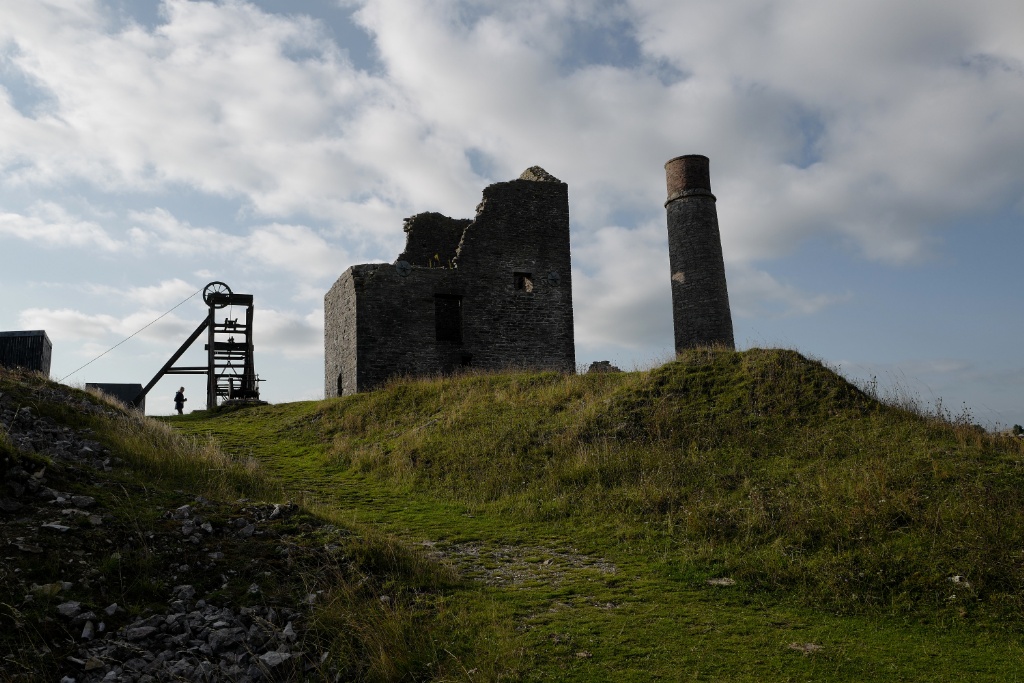The Magpie Mine
It’s nice to be back. We spent a lovely week in the UK’s Peak District, a wonderland of rolling farmland, hills and dales criss-crossed with footpaths, exquisite drystone walls, ingenious stiles and gates. (And often devoid of even the feeblest of mobile network signals, so we were frequently off the grid’ and left to our thoughts as we walked.)
It is also a countryside of paradoxes. I spent a lot of time thinking about ‘Capability’ Brown, the great 18th-century English landscape architect who mastered the art of capturing that particular kind of rural vista and miniaturising it for the parkland surrounding England’s great stately homes. But even as one was entranced by it one also realised that this wonderful countryside is entirely man-made. The Peak District looks the way it is because of the way it is farmed: it’s dairy-farming and sheep—farming country. Without those agricultural industries it would rapidly return to wilderness, and one of the paradoxes of Brexit is that it may threaten those landscape-curating industries, or at any rate make them less economically sustainable.
Another paradox is that two centuries ago this bucolic paradise was a hive of less salubrious industry. Derbyshire is littered with the shafts and spoil-heaps of intensive lead mining, each of which is designated with the term ‘dis’ (for “disused”) on the Ordnance Survey maps by which we were navigating. Those ubiquitous and inexplicable grassy mounds — those “humps and bumps”, as one farmer put it — are in fact mining spoil heaps that nature has reclaimed and rendered picturesque.
Little of the overground infrastructure of this mining industry survives — which is why the buildings of the famous Magpie Mine shown in the photograph are now so striking.
But the lush grass that surrounds them is still contaminated by lead. So on the one hand, nature has reclaimed and obliterated the industry’s detritus, which is a metaphor for the way the planet doesn’t need us. But one the other hand, our poisonous effluent remains.
Quote of the Day
”Afghanistan provides a useful reminder that while we and our European allies might be tired of “forever wars,” the Taliban are not tired of wars at all. The Pakistanis who helped them are not tired of wars, either. Nor are the Russian, Chinese, and Iranian regimes that hope to benefit from the change of power in Afghanistan; nor are al-Qaeda and the other groups who may make Afghanistan their home again in future.”
- Anne Applebaum, writing in The Atlantic
Musical alternative to the morning’s radio news
Sharon Shannon and Gerry O’Connor | Mammy Shannon’s Jig
Nice way to start a week.
Long Read of the Day
A Forgotten Prophet Whose Time Has Come
Wonderful review essay in Noema by Nathan Gardels on Ivan Illich, “a purveyor of impossible truths”:
truths so radical that they questioned the very foundations of modern certitudes — progress, economic growth, health, education, mobility. While he was not wrong, we had all been riding on a train going in the opposite direction for so long that it was hard to see how, in any practical sense, the momentum could ever be stalled. And that was his point. Now that “the shadow our future throws” of which Illich warned is darkening the skies of the present, it is time to reconsider his thought. Gardels is a deeply insightful thinker and this is as fine and generous a summary of Illich’s thinking as I’ve seen.
I loved Illich’s books when they came out in the 1970s, particularly his Tools for Conviviality and Energy and Equity. He was a radical counter-cultural thinker with a terrifically spare literary style.
Pearce Wright wrote an excellent profile of him in — of all places, The Lancet — which was remarkable given Illich’s full frontal assault on modern medicine.
Blog posts composed on the fly last week
From the online version of this blog…
- So who’s really responsible for the Afghanistan fiasco? Link
- On the sociopathy of organisations Link
This blog is also available as a daily newsletter. If you think this might suit you better why not sign up? One email a day, Monday through Friday, delivered to your inbox at 7am UK time. It’s free, and there’s a one-button unsubscribe if you conclude that your inbox is full enough already!

